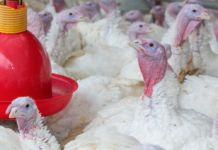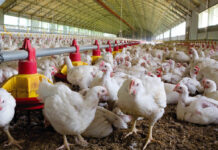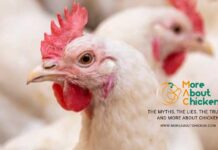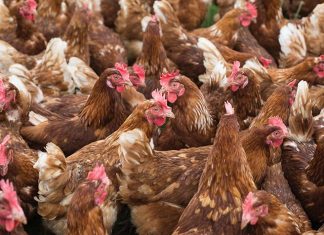
Austria is a country that throughout time has tried to maintain it traditions particularly with respect to the environment and the splendid countryside that it encapsulates. Agriculture and livestock production are important aspects of the Austrian economy.
Poultry production has had to go through considerable changes in order to conform with EEC regulations. Regarding bird welfare matters, many of the changes introduced preceded the regulations emanating from Brussels.
Austrian consumers have always had a tendency to value natural products in harmony with their care for their countryside.
Our visit to the Die Eiermacher company located in Schlierbach (Austria) allowed us a closer look at market trends within Austria. Coming from Munich to reach Schlierbach one passes, via Salzburg, through a beautiful mountainous area, richly wooded with numerous mountain streams. Through the climbs and the brief flat valley areas one can note the care and attention that is paid to the countryside and how agricultural activities add further value to their locality.
We met with Mr. Manfred Söllradl, General Director of Die Eiermacher to hear the history of the company.
Can you please tell us your history?
“The enterprise was founded by a handful of farmers about 30 years ago with the aim to collectively produce and market hatching eggs. During time the company began marketing day old chicks and also became involved in pullet sales. For the last 15 years the company has also been involved in the marketing of table eggs. Today we operate two packing stations, one for conventional table eggs and one for organic table eggs with the concentration of our company efforts being on the organic side of our business. We market around half of the Austrian organic eggs to our customers Rewe, Spar, Lidl, Hofer and others.
The second most important part of our organic branch is the development in production at our hatchery of organic broilers. We produce the Hubbard JA 57 to supply large Austrian processors such as Huber Landhendl as well as Gefluegelschlachterei Wech in Kaernten. Part of the production is also exported to Germany.
The company has around 60 employees, some working in the hatchery, some in the packing stations with a fair percentage employed in management and administration, logistics and sales. Our annual turnover is 30 million Euros with half being generated from the marketing of organic products.”
What is your product range?
“In the laying section we are marketing layer chicks and starter pullets reproduced from our own Lohmann Brown Classic and Lohmann Brown Extra parent stock flocks. We market table eggs produced in both free range and floor production units.
The Gefluegel GmbH company is organised through 30 GmbH members who mainly act as producers for Gefluegel GmbH. Additionally in the summertime there are around 200 agricultural farmers who produce something for Gefluegel. Some farmers rear parent stock, some rear commercial stock while others are producing table eggs under contract.
The company Gefluegel GmbH itself owns no hens or birds. Instead the company collects hatching and table-eggs from contract farms. The company then grades these eggs and markets them respectively as hatching eggs or table eggs. Hatching eggs are incubated in the Gefluegel GmbH owned hatchery to provide for the sale of day-old chicks or starter – pullets.”
How many Lohmann Brown laying lines are annually sold?
“We annually produce about 1.2 million starter pullets which we sell to commercial layer farmers as contractors. From these we buy back their production and market annually about 100 million table eggs. The market in Austria equates to about 6 million layers.”
Besides layer lines your production covers also Hubbard meat lines?
“Together with Hubbard we reproduce organic broilers. For this production we house Hubbard broiler breeders. The hatching eggs produced are incubated in our hatchery and the day-old-chicks produced are sold to broiler grower farms.
We have also one farm housing 5000 commercial layer quails. The quail eggs produced are exclusively for the Austrian market. A significant disadvantage with floor production versus cage laying is the high production costs due to 50% more litter being required. Understandably this means the market in Austria for quail eggs is very limited.”

Can you say something about your company’s philosophy?
“Our company is a very family orientated company with a farming background. Animal welfare and production safety rather than solely profit is our main theme.
Our philosophy is to create a company that has the ability to offer the complete profile from breeders via hatching eggs, day-old chicks and starter pullets up to the egg packing station. An important part of this philosophy is that we are strongly involved in the organic section. In fact more than half of our turnover comes from organic products.
We are market leaders in Austria. I am the general manager of the company and at the same time a shareholder of this company. We collect eggs from about 70 farms, which are packed ungraded for us on pallets. These pallets are collected weekly and once picked up are graded and packed in our egg packing stations. The flock sizes vary between 3,000 and 6,000 hens. In total around 240,000 layers produce organic eggs for Gefluegel GmbH. Austria in total houses about 550,000 organic layers. For egg grading we use a Moba 170 with automatic dirt detection.
A specialty of the Austrian egg market is that basically we sell all organic eggs via branded trade names. Our biggest customer is “Ja natuerlich” (Yes naturally), the trade name of REWE company. Other production would be packed under the SPAR trade name. We pack for all the principle registered trademarks in the table egg market. Daily we receive about 200,000 eggs which need to be graded and packed and thereafter delivered to the customers. We run 2 packing stations which are separated according to Organic and Conventional.
To obtain the results that genetic selection can provide we know that a fundamental factor is nutrition. Consistent with our philosophy of favouring natural products we have experimented with success the use of wheat germs in our feeding programmes.”
Your Hatchery?
“The hatchery in Krift was completely reconstructed from September 2013 to April 2014 by Gefluegel GmbH. The official opening was at 2nd May 2014. In this hatchery we hatch both Lohmann layer chicks and organic broiler chicks of the slow growing Hubbard JA 57.
The hatchery has a maximum capacity of 700,000 setter places and about 200,000 hatcher places. Eggs for incubation, already on the setter trays, are picked up by our own trucks from the various contract breeder farms. After arrival in the hatchery a final grading is completed on the setter trays which are then put on setter trolleys after a careful disinfection. Full setter trolleys are then rolled into the setters. There are 6 setters (setter machines) each with a capacity of 85,000 hatching eggs and 5 setters with a capacity of about 42,000 hatching eggs each. The candling and transfer of the hatching eggs is carried out using the Innovate B.V. candling and transfer machine. With this machine only fertile eggs are transferred at 18 days of incubation to the hatcher trays on their trolleys. The hatching capacity available consists of 4 hatchers with a capacity of 42,000 chicks each and 1 smaller hatcher with a capacity of 21,000 chicks.

After hatching chicks are graded by hand from the hatcher trays. Day old are then vaccinated via the vaccination carousel and, following passage through the automatic chick counter, are packed in the chick boxes. Chicks are shipped in fully acclimatized chick trucks to the rearing and growing farms.
Currently 7 people are employed as full-time workers in the hatchery with another 10 people being engaged as part-time workers to cover peaks times such as vaccination and grading schedules. Hatching takes place twice weekly and we have a completely separated production line for layer chicks and for organic broiler chicks.
The complete hatchery was designed and built in close cooperation with the company Hatchtech B.V. including the complete acclimatization. The internal hatchery mechanization was delivered completely by Innovatec B.V. Certain parts of the construction sector was supplied and installed by local companies.
The hatchery which is part of Gefluegel GmbH is under the local responsibility of the hatchery manager. Water for cleaning and cooling is delivered by the local water supplier. The installation of an emergency power station was not necessary as the location of a gas turbine plant 200 meters away covers any sudden power demand. 90% of the hatching eggs incubated originate from our own breeders with a small quantity of our requirements being bought from our partners.”

















